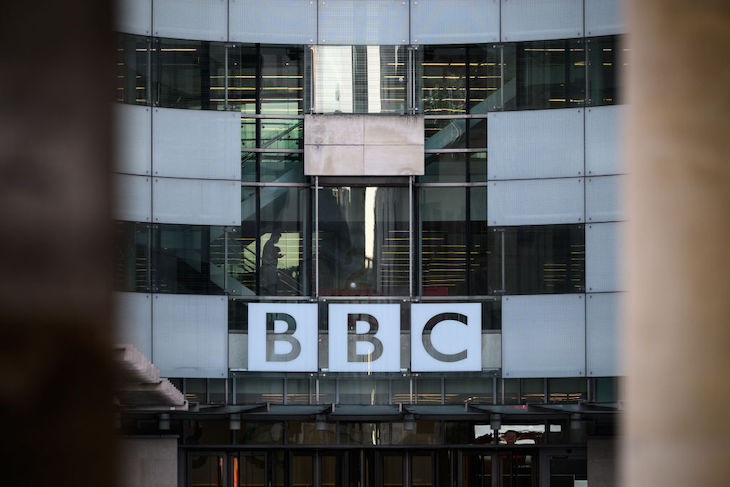Debunking the debanking
Sir: Toby Young is wrong to say the Conservatives have ‘failed us on debanking’ (No sacred cows, 8 June). On the contrary, this was a situation where immediately following his incident being brought to my attention, swift and decisive action was taken. The Free Speech Union was indeed ‘patient zero’ of the ‘debanking’ epidemiology and such was my concern about its chilling impact on freedom of expression that I invited Toby and Miriam Cates MP to meet me in my Treasury offices. Following that meeting, company bosses and financial regulators were summoned, a call for evidence to identify other cases launched, government expectations made crystal clear and civil servants instructed to explore all avenues to prevent recurrences, which led to the law change which has already been published as secondary legislation.
In the case of Nigel Farage, the NatWest chief executive left office shortly after it became clear that Farage’s political views may have played a role in the closure of his account. Farage actually described the government’s action in his case as faultless.
Toby is correct that the final implementation of legislation was impacted by the dissolution of parliament but let me be clear, implementing it in law within days of a new government being formed remains the settled policy. There is one simple way Spectator readers can ensure it reaches the statute book: to vote Conservative on 4 July.
Andrew Griffith
Economic Secretary to the Treasury, 2022-2023
The Farage side show
Sir: There is no doubt that the Conservatives need the talents of Nigel Farage to pull them together, as there does not appear to be anyone else to do the job (‘The great disruptor’, 8 June). The question is whether at this late stage of his career he can develop the persona of a national leader and statesman, or will just remain a sort of 21st-century Jack Wilkes – an amusing footnote to the history of our times.
Mark Tinsley
Warminster, Wilts
Family first
Sir: Annunziata Rees-Mogg asks what should she do in the general election (‘Divided loyalties’, 8 June). I have two suggestions. One: study the Conservative manifesto carefully. I am sure she will find plenty of policies that will appeal to her political instincts. Two: spare a thought for her brother Jacob, who, if Labour becomes the government, will face an early nasty increase in school fees.
Sir David Madel
Conservative MP, South West Bedfordshire 1970-2001, London W2
Highs and lows
Sir: We have just passed the anniversary of Jeremy Clarke’s sad demise, and although I have enjoyed many of the new lives since he left us, no column can quite compare with Low Life. Jeremy wrote about the scrapes he got himself into with wry humour, and yet some of the most moving journalism I have ever read was the way he described the hardships he experienced over the months as result of his cancer, right up until his untimely death, all told with searing honesty but without a trace of self-pity. When I learned that he had died I shed a tear, having felt a true loss for someone I had never actually met, only through the pages of The Spectator. That is surely the mark of a unique journalist, so it is right that he cannot easily be followed.
Nick Symondson
Cheltenham, Glos
Grave beauty
Sir: Some years ago I visited the Normandy graves and was touched by the splendid memorials (Notes on war graves, 8 June). The inscription which affected me the most and still does, read as follows:
‘To the world he was one of many, to us he was the world.’
To me this sums up the sadness of it all.
George Burne
Woldingham, Surrey
Confusion reigns
Sir: Spare a thought for the poor tour guides coping with ever-increasing hordes of confused travellers (‘Travel bugs’, 8 June). As the second-best tour guide in the Scottish Highlands, I deal daily with mostly delightful Americans, who are confused by our traditions and history. ‘Who was that guy, Bruce Wallace?’ is a classic question, but Queen Victoria is their favourite. ‘She lost her head, right?’ and ‘Was she Queen Elizabeth’s mother?’ are hard to answer with a straight face. ‘When are we going to see the Shetland cows?’ was a good one, as was ‘Do potatoes grow on the vine here?’ My all-time favourite was when a gentleman said to me: ‘Now all I ever hear about the British royal family, Andrew and Harry for example, is bad things. However the Scottish royal family seem much better behaved. Why is that?’
Mike Robson
Aberdeen
Soft pedal
Sir: While largely agreeing with many of the points raised by Sir Richard Aikens on the topic of London cyclists (Letters, 8 June), there are some omissions. As both motorist and cyclist, I realise there is much that is not required of cyclists that is included in the repertoire of compulsory actions needed from other road users. Cyclists have no requirement of a skills and road traffic knowledge assessment which for all other road users is compulsory, i.e. the driving test. Cyclists have no identification such as registration plates, nor compulsory insurance cover. Much of road traffic legislation is now written with cyclists in mind, for example junction priorities. As responsible road users, cyclists should be riding on an equal basis with others to which these rules apply.
Keith Marshall
Llansteffan, Carmarthenshire
Write to us The Spectator, 22 Old Queen Street, London SW1H 9HP; letters@spectator.co.uk







Comments